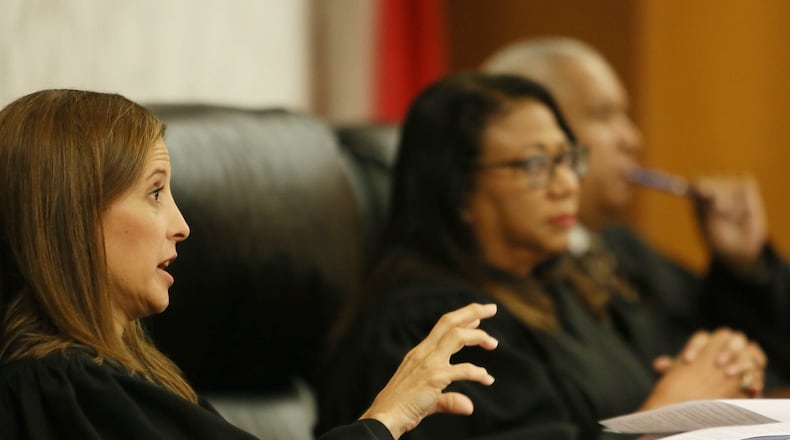Georgia’s Court of Appeals has reversed a lower court’s decision that said the state must permit residents who have been granted a special reprieve from deportation to pay in-state tuition at state colleges and universities.
At issue is the Obama administration’s Deferred Action for Childhood Arrivals Program, or DACA, which grants two-year work permits and deportation deferrals to immigrants who were brought here as children. Last month, President Donald Trump announced his administration would phase out DACA, a decision that could affect 21,600 people in Georgia.
RELATED: Report: 15,700 DACA recipients in the Atlanta-Sandy Springs-Roswell area
Issued Tuesday, the state court’s 21-page decision says the DACA recipients who sued for in-state tuition in Georgia have “have failed to carry their burden of showing that the DACA policy had the force and effect of a federal law.”
The court also said the plaintiffs had failed to show “that, even if the DACA policy had the force of law, it created a clear legal duty that required the” Board of Regents to grant them in-state tuition. Further, the board’s tuition rules, the court said, give it “broad discretion.”
The plaintiffs sued the state Board of Regents, arguing they should be allowed to pay the lower tuition rate. Fulton County Superior Court Chief Judge Gail Tusan agreed with them in her ruling released in January. The Board of Regents appealed.
RELATED: Judge orders in-state tuition for some immigrants in Georgia
Charles Kuck, the attorney representing the DACA recipients in the case, said they would appeal to the Georgia Supreme Court. Rigoberto Rivera, a plaintiff and Roswell High School graduate who was brought to the U.S. from Mexico as a child, wrote on Facebook the appeals court’s decision was “erroneous and an injustice” to the DACA recipients in Georgia who “pay taxes and that have fought for the past four years for their right to in-state tuition.”
“The Georgia Undocumented Youth Alliance will continue the fight in court,” he said.
A spokeswoman for the Georgia Attorney General’s Office, which represented the Board of Regents in the case, declined to comment other than to say the appeals court’s decision speaks for itself.
About the Author







